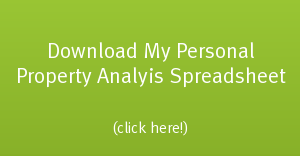
(The following is an excerpt from the new book from BiggerPockets, The Book on Rental Property Investing. If you are looking to buy more rental properties this year,pick up a copy today!)
It’s no secret that I love multifamily properties.
I talk about them on the Podcast.
I talk about them in books.
I talk about them at local BiggerPockets meetups.
Heck, I’m even doing an entire LIVE webinar workshop this week on the topic of “Using Duplexes, Triplexes, and Fourplexes to Find Financial Freedom.” (Which you should really attend. It’s on Wednesday evening, and it’s going to be AMAZING! Click here to sign up.)
But are multifamily properties right for everyone?
No.
Just because some guy on a blog/podcast/webinar says it’s great DOESN’T mean you should go out and buy one. There are pros and cons to multifamily investing over single family.
Therefore, today I thought I’d give you a quick summary of the pros/cons of multifamily investing to help you decide if it’s the right path for you. But first…
What is Multifamily Property Investing?
Multifamily properties are buildings with more than one unit.
A multifamily could be as small as two units in a duplex or as big as thousands of units in a large apartment complex. Few people ever buy a multifamily to live in (though I do love the strategy of “house hacking,” where an individual lives in one unit and rents the other units out), but instead, most multifamily properties are owned by real estate investors who rent the properties out to those who can’t — or won’t — buy a single-family home of their own.
Multifamily classification is generally split into two categories: small and large.
- Small multifamily properties are any properties that contain two, three, or four units.
- Large multifamily properties, therefore, are those with five or more units.
This is an important distinction because of the way these properties are valued and financed. Smaller multifamily properties are considered “residential” to most lenders and are thus seen as no different from an SFR. Large multifamily, however, is considered commercial real estate, and the rules change drastically.
(Click to read on BiggerPockets…)
P.S. looking for hard money loans in California? Be sure to check out my friends over at northcoastfinancialinc.com. They have very competitive rates, can fund within a week and specialize in fix and flip loans and other hard money loans.





 If this is your first time here at Real Estate In Your Twenties.com - welcome!
If this is your first time here at Real Estate In Your Twenties.com - welcome! 





